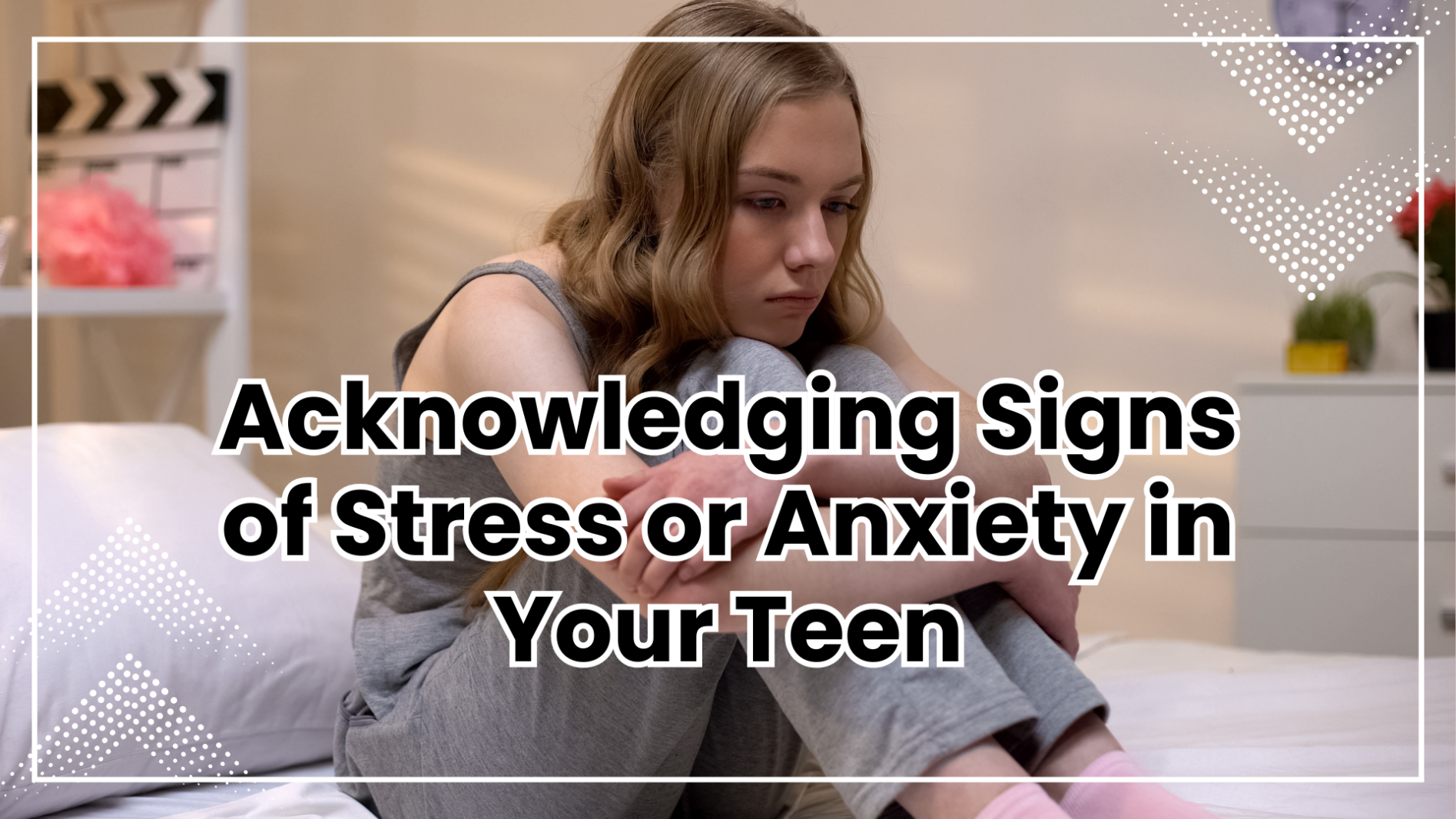Acknowledging Signs of Stress or Anxiety in Your Teen

As our teens embark on the journey of leaving home for college, the military, or simply getting their own apartment, it's natural for them – and for us – to experience a wide range of emotions. Excitement, anticipation, and pride may be mixed with feelings of sadness, worry, and fear of the unknown.
Common Signs of Stress or Anxiety to Look Out for in Your Teen
- Changes in Behavior:
Is your teen suddenly withdrawing from activities they used to enjoy? Are they spending more time alone or avoiding social interactions? Changes in behavior can be a sign that something is troubling them. - Physical Symptoms:
Pay attention to any physical symptoms your teen may be experiencing, such as headaches, stomachaches, fatigue, or trouble sleeping. These can be manifestations of underlying stress or anxiety. - Academic Performance:
Has your teen's academic performance suddenly declined? Are they struggling to focus or concentrate on their schoolwork? Academic difficulties can sometimes be a sign of stress or anxiety affecting their ability to learn and retain information. - Mood Swings:
Is your teen experiencing frequent mood swings, irritability, or outbursts of anger? These can be indicators of underlying emotional distress that need to be addressed. - Changes in Eating Habits:
Keep an eye on your teen's eating habits. Are they eating significantly more or less than usual? Changes in appetite or eating patterns can be a sign of emotional distress.
Contact us now to discover how we can assist you in navigating the challenges of guiding your teens.
Thank you for subscribing!
Have a great day!
If you notice any of these signs in your teen, it's important to take them seriously and offer your support and understanding.
Tips for Addressing Stress or Anxiety in Your Teen
- Open Communication:
Create a safe and non-judgmental space for your teen to express their feelings and concerns. Let them know that you're there to listen and support them, no matter what. - Validate Their Feelings:
Validate your teen's feelings of stress or anxiety by acknowledging that what they're experiencing is real and valid. Avoid dismissing or minimizing their emotions, and reassure them that it's okay to feel scared or overwhelmed. - Offer Practical Support:
Help your teen develop healthy coping mechanisms for managing stress and anxiety, such as deep breathing exercises, mindfulness techniques, or engaging in physical activity. Encourage them to prioritize self-care and to reach out for help when needed. - Seek Professional Help:
If your teen's stress or anxiety persists or becomes overwhelming, don't hesitate to seek professional help from a therapist or counselor who specializes in working with adolescents. Therapy can provide valuable support and guidance in navigating these difficult emotions.
By acknowledging and addressing signs of stress or anxiety in your teen, you're taking an important step in supporting their mental health and well-being as they navigate this significant life transition.
